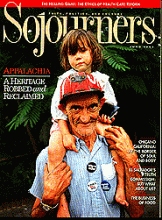The United Nations Truth Commission accurately titled its summary of criminal violence during El Salvador's 12-year war From Madness to Hope. The madness is documented in the 211-page report, wherein the commission outlines the results of exhaustive investigation into the more notorious war crimes committed there. The hope lies in the fact that there was such a commission and report--and that truth has been at long last revealed.
For the peace community within and outside El Salvador, the findings of the Truth Commission hold no surprises. Still, the prestige of the investigators, the extent of their search, and the dispassionate tone of the report make it a stunning verification of what we knew and loudly said was happening in El Salvador throughout the dreadful decade of the '80s.
That small country now has before it the excruciating task of dealing with the fratricidal events verified by the Truth Commission. That Roberto D'Aubuisson, the founder and one-time leader of El Salvador's governing party, ordered and paid for the assassination of Archbishop Oscar Romero; that the U.S.-trained Atlacatl Battalion of the Salvadoran army "deliberately and systematically" killed more than 200 men, women, and children in the village of El Mozote; that members of the National Guard under orders from their superiors executed four North American churchwomen; that the state of El Salvador--through the actions of members of the armed forces and others--tolerated, promoted, and participated in death squads; that the commandant general of the Farabundo Marti Liberation Front (FMLN) approved and adopted a policy of killing mayors who were considered to be working in opposition--these and so many more are the deep wounds that the Salvadoran populace at every level now has to bind up.
Read the Full Article

